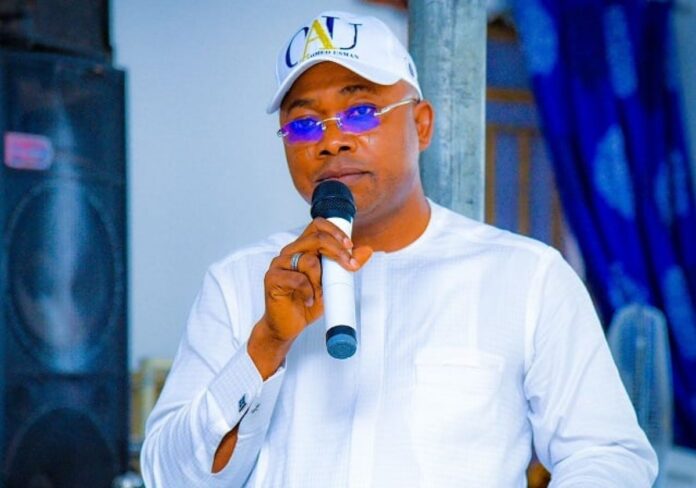Confusion trailed the National Assembly in Abuja on Wednesday following widespread reports that Kogi State Governor, Usman Ododo, was allegedly barred from entering the Senate chamber during the confirmation of the newly appointed Chief of Army Staff, Major-General Waheedi Shaibu.
Governor Ododo, who reportedly arrived to show solidarity with the new Army Chief—also an indigene of Kogi State—was said to have been prevented by security and protocol officials from gaining access to the Senate gallery, an action described by some aides as a recurring embarrassment.
Multiple eyewitnesses claimed this was not the first time the governor had been turned away from the Red Chamber. Sources recalled that Ododo was earlier denied entry during the confirmation of INEC Chairman, Prof. Joash Amupitan, another Kogi-born appointee.
An insider who spoke to The Daily Post explained, “Governor Ododo was again bounced from the Senate. He came in goodwill to support the Chief of Army Staff’s confirmation, but they stopped him, saying it was not a political event. They reminded him that no other state governor was present to support appointees from their states — only Kogi.”
The source further revealed that no formal invitation had been extended to the governor, sparking speculations that the National Assembly is enforcing stricter access rules for political officeholders during sensitive legislative sessions.
However, the Kogi State Government swiftly reacted, describing the reports as false, misleading, and politically motivated.
In a statement, Kingsley Fanwo, Commissioner for Information and Communication, said the governor was never walked out of the Senate.
He explained that Ododo had visited the National Assembly to greet senators and lend moral support to the Chief of Army Staff before leaving to submit the report of the Ekiti APC governorship primary, where he served as committee chairman.
According to Fanwo, “No one walked Governor Ododo out of the National Assembly. He was there to support a son of Kogi who was being screened for a national assignment. We were there for over an hour, and he later proceeded for another engagement. Those spreading lies are only trying to create unnecessary controversy.”
He further accused “disgruntled politicians” of fabricating stories to “paint the governor in bad light” and distract him from governance.
Meanwhile, officials within the National Assembly have maintained silence on the matter, leaving room for public speculation over what exactly transpired behind closed doors.
The controversy, however, highlights growing tension between state executives and federal legislators, particularly over access, protocol, and the boundaries of official representation within Nigeria’s democratic system.

